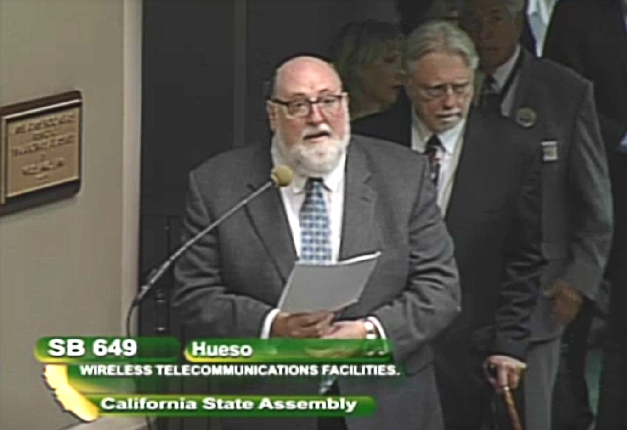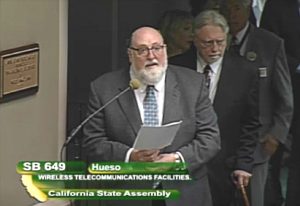The California Department of Finance quietly released its analysis report last week determining that SB 649 is likely to create a million dollar unfunded mandate, fails to cure basic wireless digital divide issues; and is fails to address important issues of community aesthetics.
If this bill is enacted and a test claim is filed with the Commission on State Mandates, the Commission may determine the bill imposes reimbursable, state-mandated costs on local agencies.
The potential state mandate would stem from (1) the bill’s $250 limit on the annual lease charge that cities and counties can impose on each small cell device attached to its vertical infrastructure, and (2) a formula that limits the annual attachment fees that cities and counties may charge for each small cell device attached to its vertical infrastructure. If the Commission determines the lease and fee revenue derived under these caps is insufficient to fund the claimants’ actual inspection and maintenance costs, the difference would be state-reimbursable.
While the extent of the potential mandate is unknown, Finance believes it can easily approach $1 million per year.
The Department of Finance did not mince words:
Finance opposes this bill. While statewide uniform rules can help the expansion of new technologies, this bill goes too far by usurping city and county zoning authority for infrastructure development, and it potentially imposes reimbursable, state-mandated costs on cities and counties.
The DOF noted some of the key basic inequities in SB 649, including the fact that this bill does NOTHING to reduce the wireless digital divide in California:
We also note the bill poses equity and access concerns. The bill gives telecommunications providers the power to determine where they deploy small cell technologies, which can be highly localized. Providers may cover high-demand neighborhoods first, while low-income neighborhoods may be left underserved. This arrangement follows in the path of high-speed internet service, which has led to uneven access for rural and lower-income areas. Under current law, cities and counties can require, as part of their permitting process, that small cell providers incorporate rural and lower-income areas into their service networks. By pre-empting local government authority, this bill also limits city and county tools to address those equity issues.
. . .
This bill also prevents local governments from addressing community concerns about small cells, such as the aesthetic impact small cells may have on a locality.
This ill-conceived and poorly thought-out wireless industry give-away is the wrong bill for California. There is a right bill, but this is not that bill.
CLICK HERE TO DOWNLOAD THE FULL DOF SB 649 ANALYSIS.
Contact your Assembly Member and State Senator TODAY…RIGHT NOW…and tell them why SB 649 is a wireless industry give-away that hurts all Californians.
#StopSB649
#SB649
#OpposeSB649



